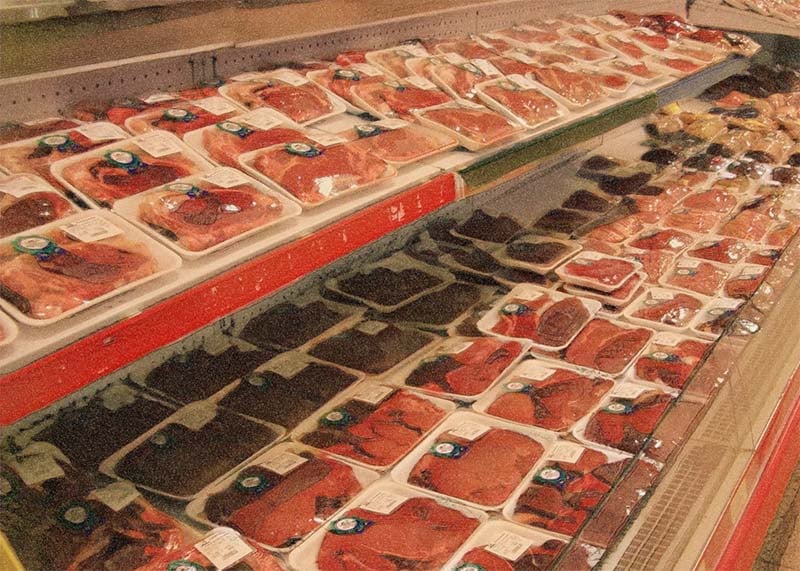
What Mercosur means for your dinner
Nowadays, grocery products come from all over the world, prices fluctuate, labels change, and somehow we're expected just to know why our groceries cost more this week. Sometimes, it's foreign policy.
The EU-Mercosur trade deal probably sounds distant, but the consequences land right in your shopping basket. It's about tariffs – but also about steak, oil, and how much you'll pay for Argentinian Malbec or that fancy Brazilian coffee.
What is Mercosur?
Mercosur is South America's version of the EU's single market, with Argentina, Brazil, Paraguay, Uruguay, and Bolivia as full members. Initially formed in the early 1990s to, believe it or not, prevent a nuclear war between Brazil and Argentina, it quickly evolved into a market that made trade across the region easier. These countries can freely trade with each other, much like EU countries do, and their citizens can live and work in any of the member states.
Now, after over 20 years of stop-and-start negotiations, the EU and Mercosur have drafted a trade agreement that could link over 715 million people in one of the world's largest free trade zones. The deal should be officially ratified by December of this year under the Danish EU Council presidency, and crucially, during the final term of Brazil's president Lula.
Lula has made his ambitions clear: ”I will step down as president of Mercosur with the EU-Mercosur agreement reached.” In a passionate plea to one of the deal's main sceptics, he added, ”My dear Macron, open your heart a little,” urging France to see the broader economic and geopolitical benefits of the agreement – but more on this later.
What's in it for Europe?
On paper, a lot. Cheaper imports, expanded export markets, investment opportunities, and a stronger geopolitical presence in a region that's long flirted with China. For companies, it's an incredible chance to compete within Latin American markets. For consumers, the integration of Mercosur holds the potential to reduce prices and expand the range of available products.
The next time you, as an EU consumer, walk into a supermarket, you'll likely encounter a richer, more international selection of foods and beverages. Sectors like cosmetics, textiles, and leather goods also stand to benefit.
However, any resultant price decreases may be marginal, and their impact on consumer purchasing power could be limited. This is because most of the gains from the EU-Mercosur agreement are expected to come from increased product variety rather than significant cost reductions. So while you may not fill your cart for less, you might just find something new to brag about at dinner.
Who's against it?
The farmers of France, Ireland, and Poland are against it. They interpret this as a sharp elbow to their local production: the deal allows an additional 99,000 tonnes of beef and 180,000 tonnes of poultry from Mercosur to enter the EU with minimal tariffs. They know they're up against competitors with vastly different production standards, better quality, and often lower costs. And they have a lot to say about it: French Agriculteurs have headed their tractors into the middle of Paris while Polish farmers blocked the border with Ukraine.
Environmental and political groups, too, are sounding alarms, claiming this deal could lead to more deforestation in Brazil and put consumer health at risk. The European Greens say the agreement breaks with the Green Deal. It means more beef and soy, for which the forests pay the price; deforestation could jump by a quarter each year. Indigenous people lose their land and their say. There are no real punishments if the rules are broken. Climate promises are left behind. The land burns, the trees fall, and still the deal moves forward, they argue.
Who's pushing the deal forward?
The EU deal is especially significant for Mercosur: it is their first major trade agreement with a global heavyweight. The EU is one of its most important markets and has already liberalised a very high percentage of its imports from Mercosur. But which European states benefit the most from the alliance?
The two biggest supporters of the trade are Germany and Spain. On this, they see eye to eye, or ojo to Auge. At the Bundestag, they see it as a boost for their jobs and exports, especially for their small and medium-sized enterprises, which would provide the country with growth, employment, and a strong European stance in global competition. In Spain, they understand the deal as an excellent opportunity for their agriculture, livestock farming, and fisheries, among other industries.
Why should you care?
It's about your receipt. What you and your family eat, how much you pay for it, and your saving capacities are shaped by trade deals like this. So, next time you're in aisle seven, wondering why your staples feel less... stable, remember that someone, somewhere, probably just signed something.